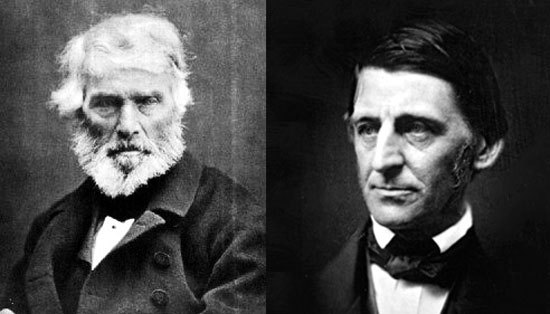Part 8 of the Master Key Experience is compelling. There are two types of thoughts, both wanting the same outcome, which is to experience success. However, one chooses the path of peace and harmony to experience success, and the other chooses to hate the bad. You may at first think these are both the same, but they are profoundly different energy frequencies.

Compelled to learn more about the two men, I found a very interesting article sharing Emerson’s time in Britain in 1823 and again in 1847. (Click here to read it for yourself)
A Summary of the two men
Emerson arrived in Britain as an unknown scholar to meet Carlyle and others who had inspired him. Emerson arrived on his first visit in deep pain after the death of his wife, he was in his 20’s and had followed the footsteps of his father training in Unitarianism which was the mainstream religion of Christianity. Carlyle on the other hand believed that ‘God was in every man’, something that Emerson looked upon critically even though he himself had become doubtful of the very foundations of his ministry.
Still, the experience helped Emerson to get his life back on track by making it his mission to prophasys — about God’s presence in all to a wider audience than the Church could provide. Emerson’s career as a writer and lecturer grew over the fourteen years as a literary phenomenon. When he returned to the UK after fourteen years to meet Carlyle again who had demanded that Emerson meet him on his arrival to the UK. Emerson was not met with a welcome as Carlyle was rushing to complete a literary piece. Emerson goes on to record his visit with Carlyle and describes him as intense, frustrated, and gloomy. Carlyle is described as talking like a very unhappy man, profoundly solitary, displeased & hindered by all men & things.
What I found fascinating here is how despite Emerson’s loss he made his focus, INSPIRATION. Yet, Carlyle who despite his philosophical view of “God was in every man”, failed to see his moods and emotions were creating his reality of life. Both men parted ways after a disagreement over the understanding of Oliver Cromwell which Carlyle was writing about. It would cost them their friendship. Carlyle predicted that Emerson would never be as successful a literary scholar in England, writing that ‘he was far less talented than anticipated, and finally concluded that, ‘Friends, it is clear, we can never in this world, to any real purpose, be.’
What I have learned from the story of the two literary scholars was how Emerson turned his life around because he loved the symphony of peace and harmony where Caryle despite his belief that ‘God was within each man’, hated the bad, and his life was full of discord, trouble, and frustration. He failed to see he was creating his reality because his attention was always on the bad. He would therefore not move ahead as quickly as Emerson.
How often are we focusing on the bad and drawing more frustration, discord, and trouble our way? What could be the experience of your life if you could grow a new habit and focus on approaching everything in life from the position of peace and harmony and surrender the outcomes. More than often they will fall in your favour.